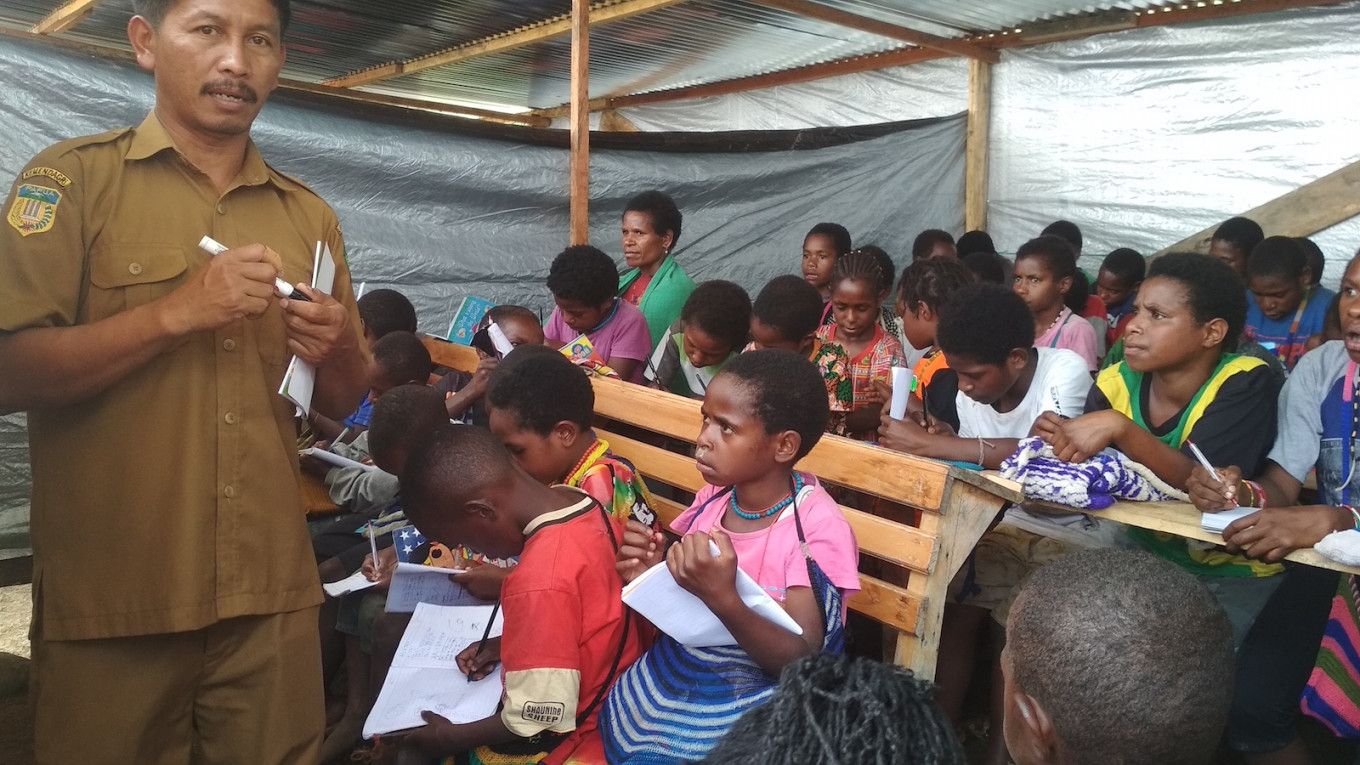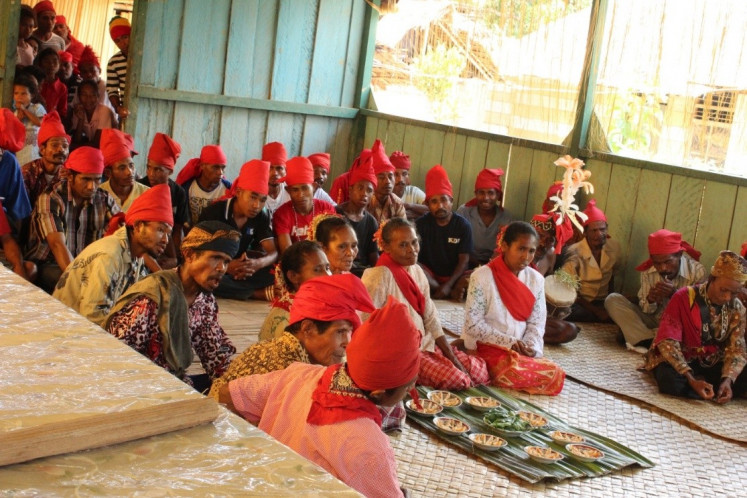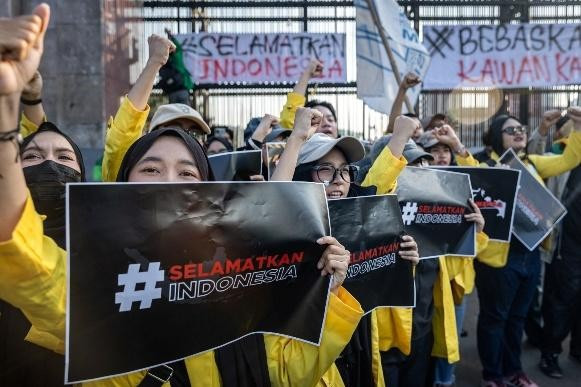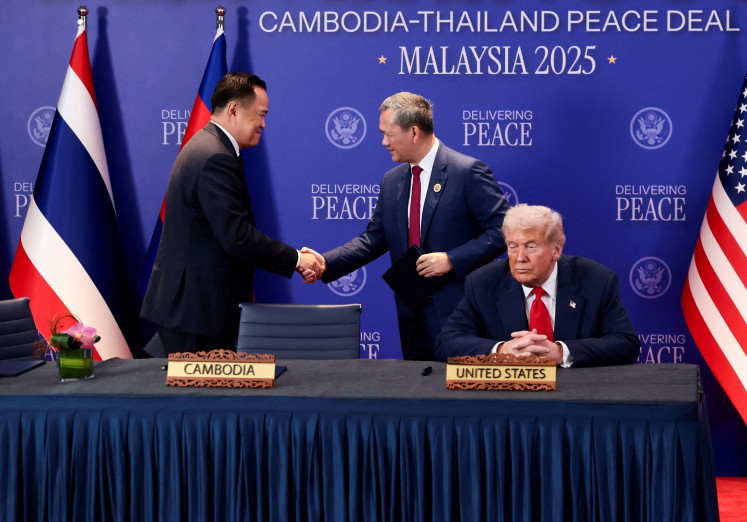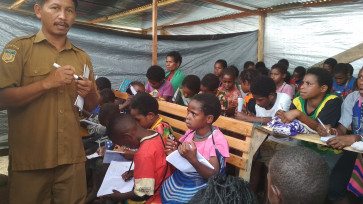Popular Reads
Top Results
Can't find what you're looking for?
View all search resultsPopular Reads
Top Results
Can't find what you're looking for?
View all search resultsFuture of children’s studies unclear in Nduga conflict
After nine months of armed conflict in Nduga regency, hundreds of school-age children are still in the dark about the future of their studies. Living in poor conditions in Wamena does not shed light on how they will manage to keep surviving, let alone continue studying.
Change text size
Gift Premium Articles
to Anyone
M
assive demonstrations and riots in Papua are not the only pressing issues in Papua. After nine months of armed conflict in Nduga regency, hundreds of school-age children are still in the dark about the future of their studies. Living in poor conditions in Wamena does not shed light on how they will manage to keep surviving, let alone continue studying.
The armed conflict, which has been going on since December, has merely resulted in the displacement of thousands of internally displaced persons (IDP) in neighboring Nduga regency. A local humanitarian group has reported the deaths of 184 displaced Nduga people, 41 among them being school-age children. What is the future for school children amid the current armed conflict, particularly in Wamena?
The local voluntary group, which I joined during fieldwork, and local teachers who were also affected by the conflict in Nduga, have built an “emergency school”. There are two objectives of this school. First, it is a symbol of the existence of IDPs, particularly women and children. The absence of a plan to relocate IDPs, particular from Wamena, has resulted in the denial of local governments and local security personnel regarding the existence of displaced Nduga people. Having the school established in Wamena exhibits a strong presence of those affected by armed conflict without government recognition or assistance.
Second, the emergency school paves the way for conflict-affected children with their trauma to be treated differently from their friends. In contrast to the government’s initial plan to place the children from Nduga in regular schools in Wamena, those children have been living in traumatic conditions that affected their studies. Accordingly, the children would first need formal trauma-healing treatment before being placed in regular schools. Not to mention, their learning abilities are relatively behind their peers who studied in normal educational environments.
The barefooted children used to come earlier to class before teaching started at 8 a.m. because they had to walk a long distance to reach the emergency school. Now they struggle to continue studies with only two available teachers and a few volunteers, chiefly due to the refusal of Nduga’s local authority to acknowledge the school in Wamena; not to mention the school’s poor condition which lacks funds for necessary renovation.
The Nduga regency has the lowest human development index (HDI) in the country at 27.87 percent, which is below the 2017 provincial average of 59.09 and the national average of 70.81. Both Papua and West Papua have low HDIs.
Providing children with good access to education and health care is a critical component of improving the HDI. However, children in Nduga have been struggling to have such access. The continuing cycle of violence in Nduga, which has caused suffering and trauma since the 1990s, leaves children without a good education.

